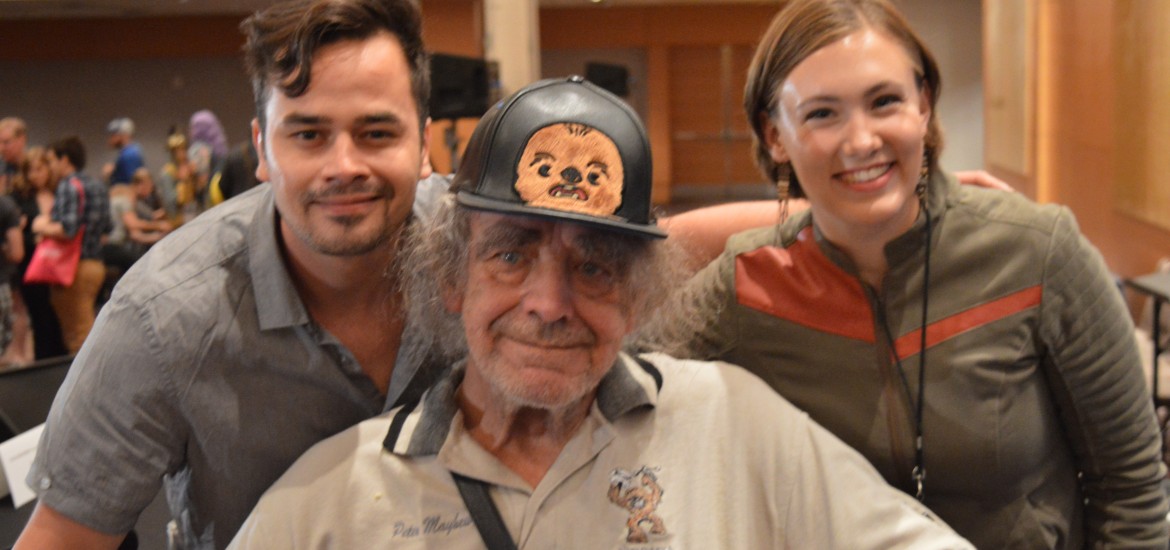Dragon Con 2017 is over, and I wanted to touch on something I really enjoy about it: the fact that it’s a by the fans, for the fans convention. One aspect of this is that the majority of panelists and moderators are fans, and thus share a similar perspective to the rest of us fans. Being a moderator is hard work though (if done correctly), and with the many hours of content Dragon Con has to offer, I wanted to go over the process of what it’s like being a moderator. On Saturday, I hosted the main Star Wars “Meet the Stars of Star Wars” panel with Daniel Logan and Peter Mayhew, and here’s my behind the scenes experience preparing for and hosting it.
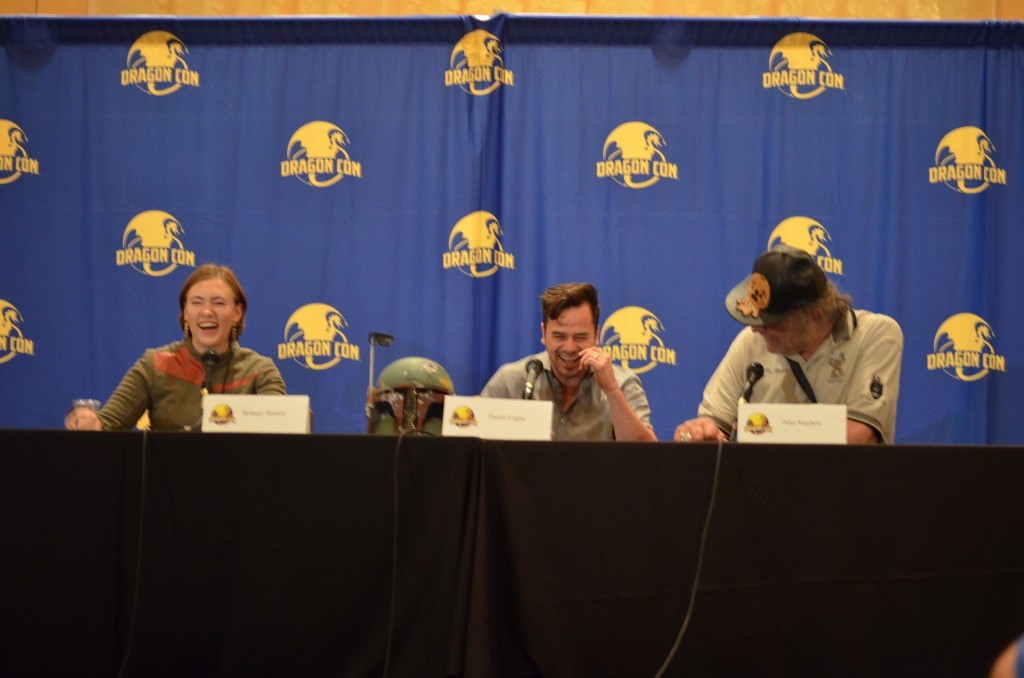
Preparing for hosting a panel always gives me a few jitters, as I get nervous wondering if it will go well, if the guests will respond well to my questions and the conversation, and if the audience will enjoy the end result. When preparing for a panel with guests I always do background research into the guests’ relevant roles, their social media presence, past interviews and panels with them, and projects they are currently working on. Essentially, good moderators are glorified, innocuous stalkers because of the amount of behind the scenes preparation they do for a panel. A good background of knowledge is a necessary element for a panel with guests to go well, so I try not to skimp on research. For this panel, I drew on Star Wars Rebels, the original trilogy, a little of the upcoming films, and previous interviews with Daniel Logan and Peter Mayhew.
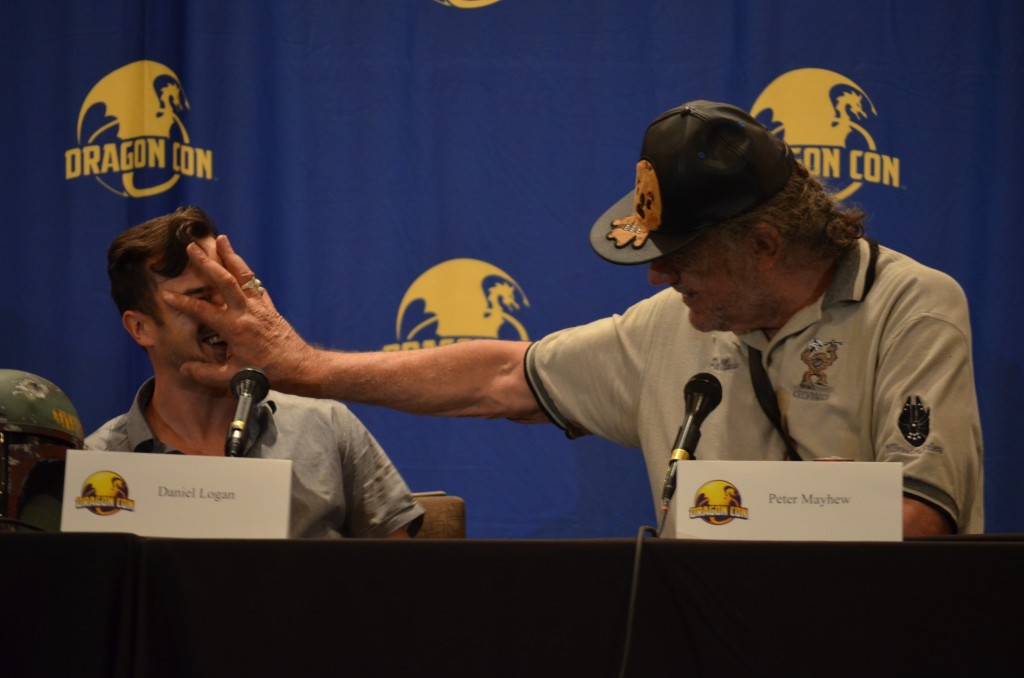
Collaboration with the guests, other moderators, which track is helping you run the panel, the tech people, and the guests representatives is important. Communicating with the guests and their representatives helps set the tone for a good panel, allows you to get to know each other a little bit, and helps ensure that awkward, painful, or unwanted topics can be avoided. I did this with Peter and Daniel, and it helped all of us feel more at ease going into the panel. If I were an investigative journalist I’d ask tough questions, but this is a panel for the audience to enjoy, and if the guests feel uncomfortable, that will translate into a bad panel. I also communicated with my brother Riley, and my friend Bryan, who both hosted this panel but on different days (Friday and Sunday). This helped ensure that anything we learned we could pass on, and we could hopefully not cover too many of the same topics and stories.
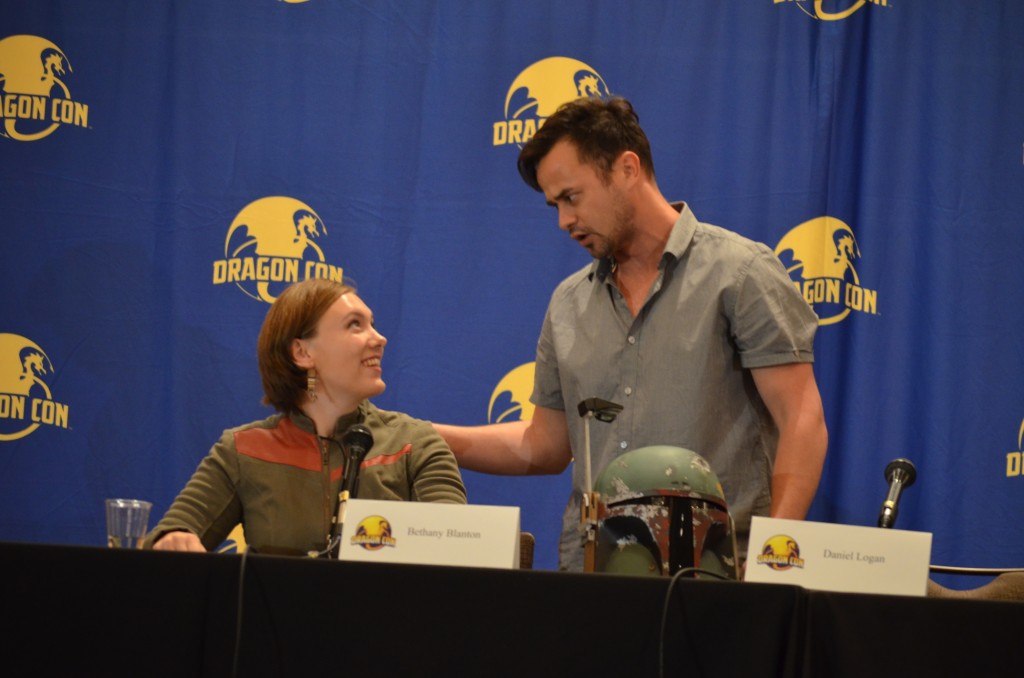
Communicating with the track and the tech people is also extremely important, as the track needs to know how they can assist you, and what to expect from you. The tech people also need to know if you have slides, videos, images, or music so they can ensure everything is set up correctly. Having the correct wires, connections, adapters, etc. can keep a potential tech disaster from happening. Testing everything ahead of time with them will make your panel run SO much more smoothly.
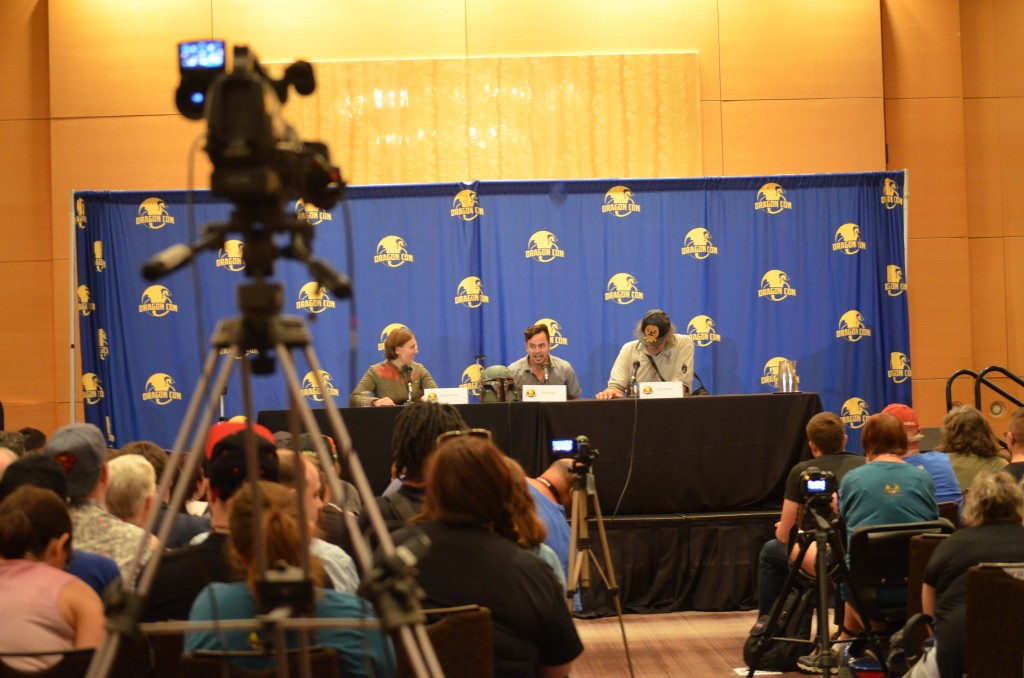
Another aspect of a good panel is having media ready: pictures, movie screen shots, trailers, social media. etc. In this case I decided not to use media as the guests would not be able to see it with the room set up as it was. In addition to media, I usually have topics and questions prepared ahead of time too. I prepare these using the research I did, and also by collaborating with my fellow Star Wars fans who can give me feedback on what they would be interested in hearing on a panel. I often use social media too, asking Star Wars fans to let me know what they would ask of the guests if given a chance to. This panel was tough because I had planned on using media, but realized the room setup wasn’t ideal for it. I wound up changing my plans and ditching some questions I had that were based off of clips (some from Daniel’s Instagram, Peter’s Twitter, and from Star Wars Rebels) I was going to show.
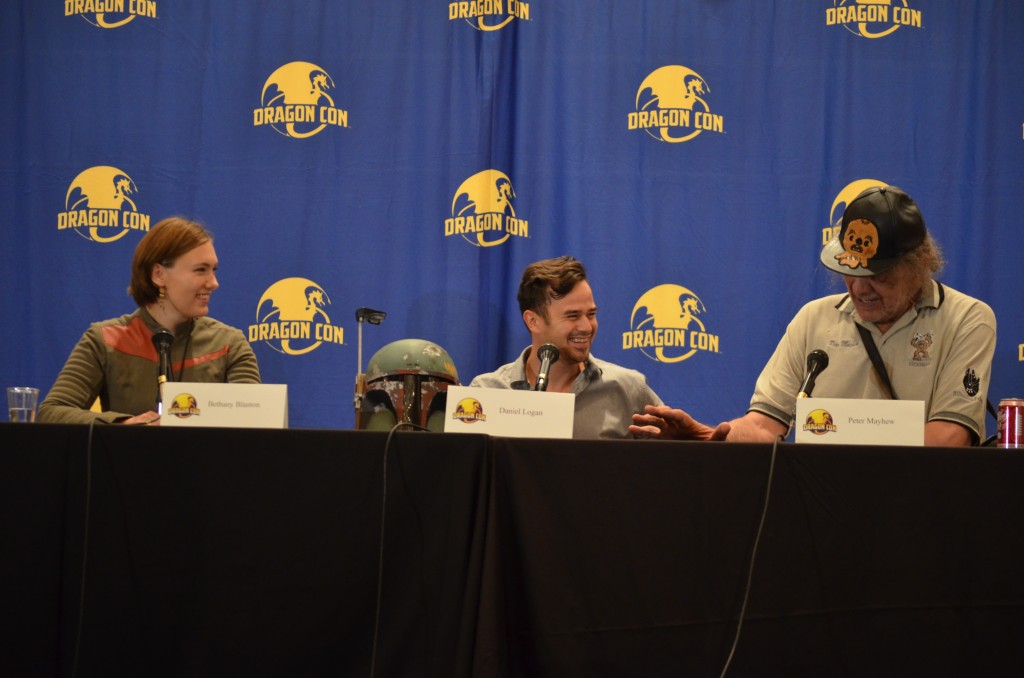
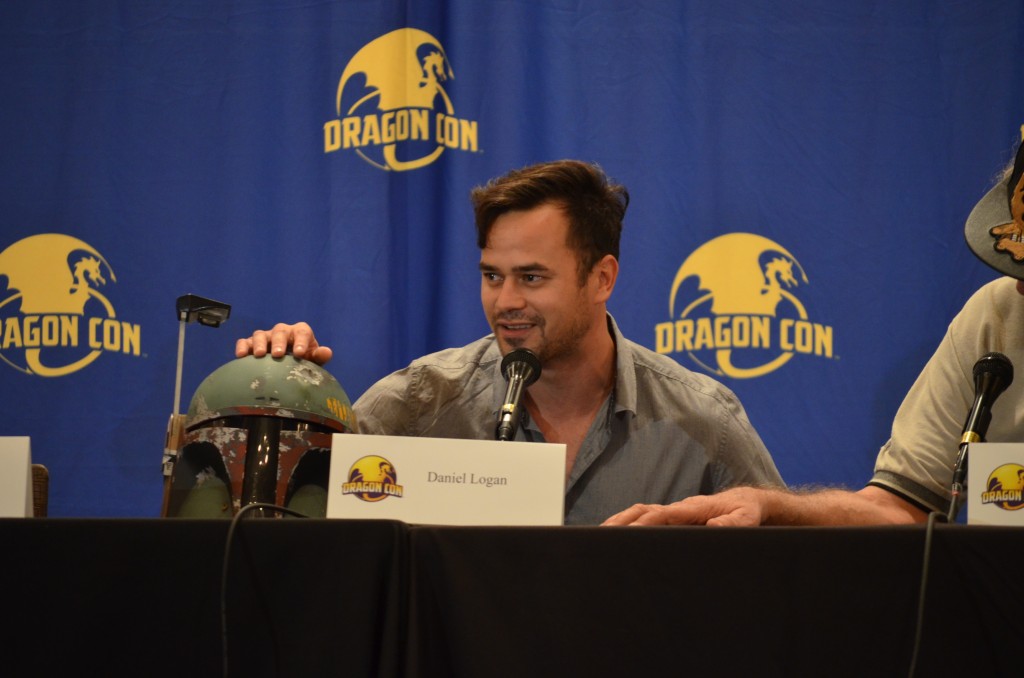
Topics, questions, and story prompts are all good to have as backup, but it’s important not to sound too mechanical. I use my prepared topics, questions, and story prompts as guidance, but let the conversation flow naturally: don’t feel you need to ask every single question. If the guest goes down fun rabbit trails, tells stories, or starts joking with you or the other guests, that makes a panel more genuine and interesting than a couple of people asking questions and those questions being mechanically answered. Story prompts are great for this: questions like “what was the most fun/embarrassing/interesting/scary experience when filming with X person or X movie?” I didn’t use them all, but some of my prepared questions were:
- How’s Dragon Con going? How many times have you been here?
- What makes your character, your character?
- What do you love about your character?
- If you could create a character for Star Wars, what would that look like?
- What are some of your best memories from Star Wars?
- What’s something that surprised you about filming Star Wars?
- Peter, what was the “we’re home” moment in The Force Awakens like to film?
- Daniel, what’s the story behind the Boba Fett helmet you have?
- Peter, what do you think the friendship between Yoda and Chewie was like? We see them in Revenge of the Sith, but not for very long….
- Daniel, how do you think Boba not having a father impacts his character?
- Daniel, if you could write, direct, and star in a Boba Fett movie, what would that look like?
- Peter, can you tell us a bit about the Peter Mayhew foundation?
During the panel, the above questions sparked a lot of discussion and reminiscing, and a fair amount of it wasn’t even related to the questions, which was great, because good stories were told.
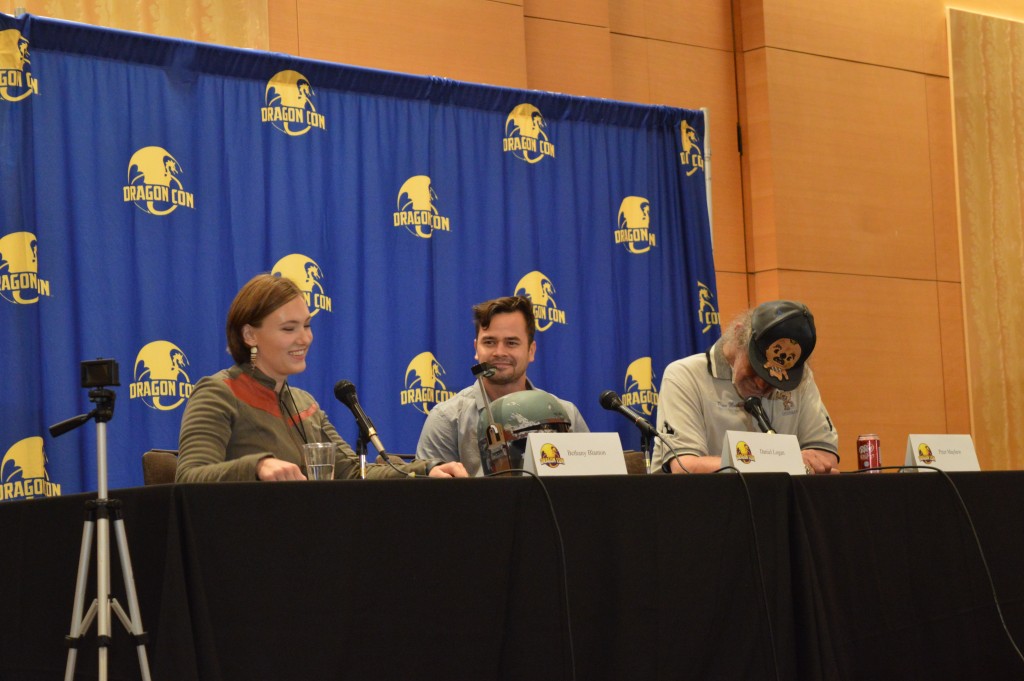
During the panel, it’s important to pay attention to your guests, because if they’re enjoying themselves, talking a lot, bantering back and forth, and telling stories, then the audience will be having fun. Keep your audience in mind by pretending you are the audience: what would you be interested in hearing? Do you find what’s being talked about fun, interesting, hilarious, informative, or riveting in some way? Peter and Daniel had a lot of great stories to tell, but sometimes guests are tired, or feel like they’ve told stories multiple times, and need to be prompted.
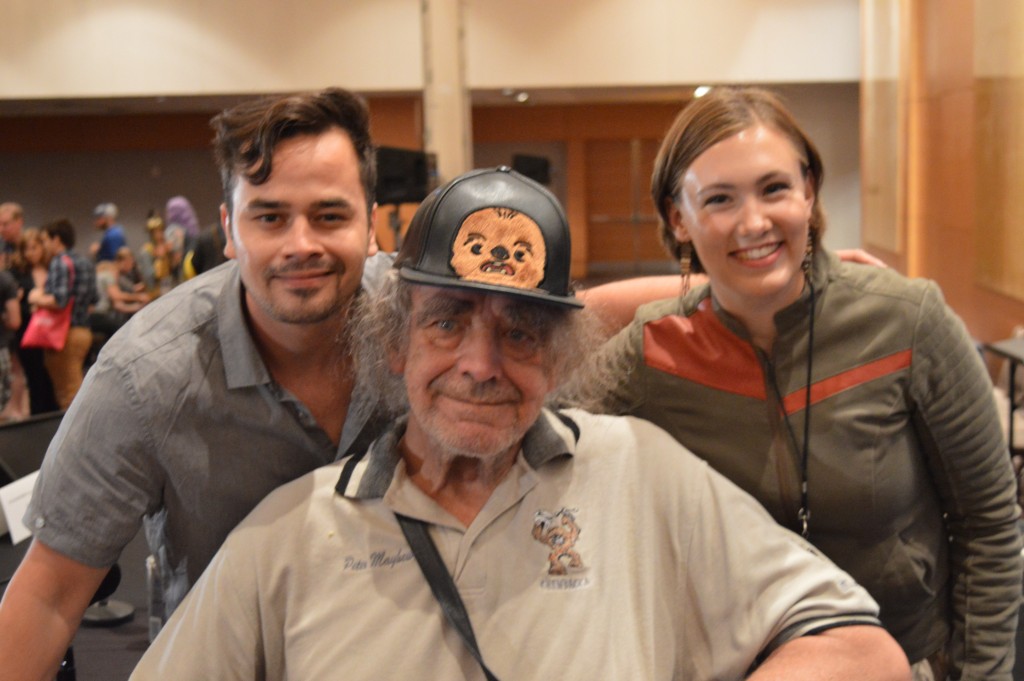
Speaking in public can be scary, but remember to project confidence, speak loudly and clearly, and use proper microphone technique (get close to the mic!!!!!!! I can’t emphasize that enough.), and it will go well. After all, if you’re moderating a panel with guests, the guests are the focus, not you. If you make mistakes, or someone on the panel misspeaks, laugh it off and move on. No one will remember a minor misspeak five minutes later, except you. 🙂 Also, the more you practice speaking in public, the better you get. Podcasting, public speaking, joining Toastmasters, briefing, or even just speaking in front of groups about anything can help you improve. When I first spoke publicly my voice would shake and I was absolutely terrified of it. Now I rarely get shy or nervous, and often enjoy it. Listening back to yourself or having someone else go over what you did well and what you could improve is helpful. If the guests are shy about public speaking, try to put them at ease by being friendly and casual, and avoid ‘gotcha’ questions. Neither Peter or Daniel were shy, so I had no issues with that!
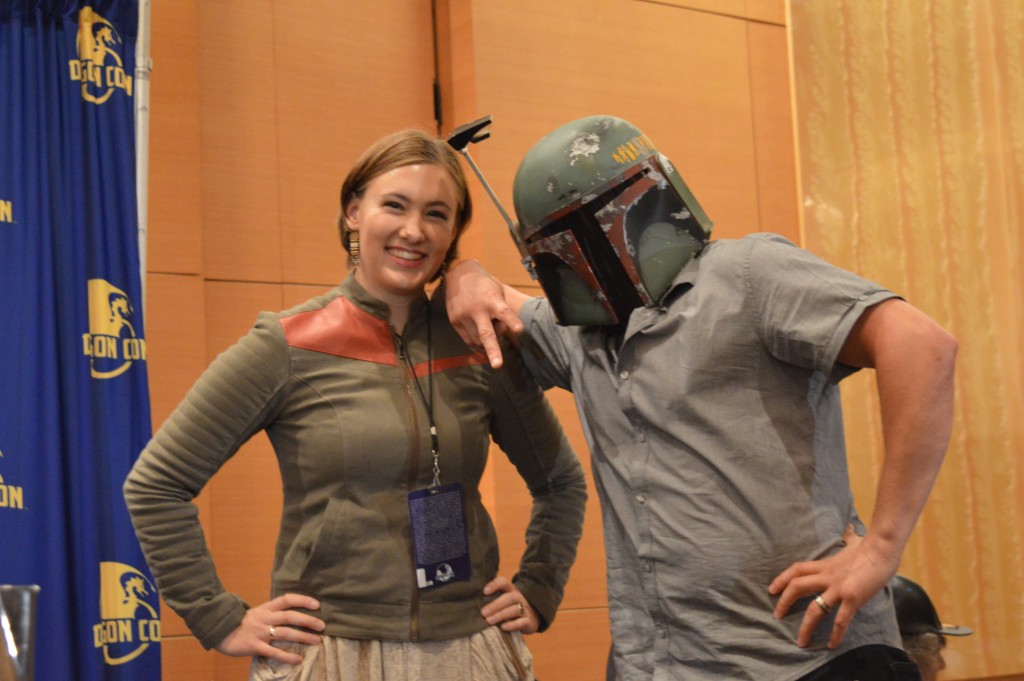
If you take questions from the audience, definitely have a friend or staff member monitor the questions microphone, and be the one to actually hold it up to audience members asking questions. This helps ensure one person doesn’t keep it for too long, or ask inappropriate questions. They should also ask the person what their question will be to make sure it’s not inappropriate, and help the person speak up and use proper mic technique so everyone can hear them. We had issues sometimes with not being able to hear an audience member question, and if me, Daniel, or Peter understood it, we’d repeat it for each other so that all of us knew what was asked.
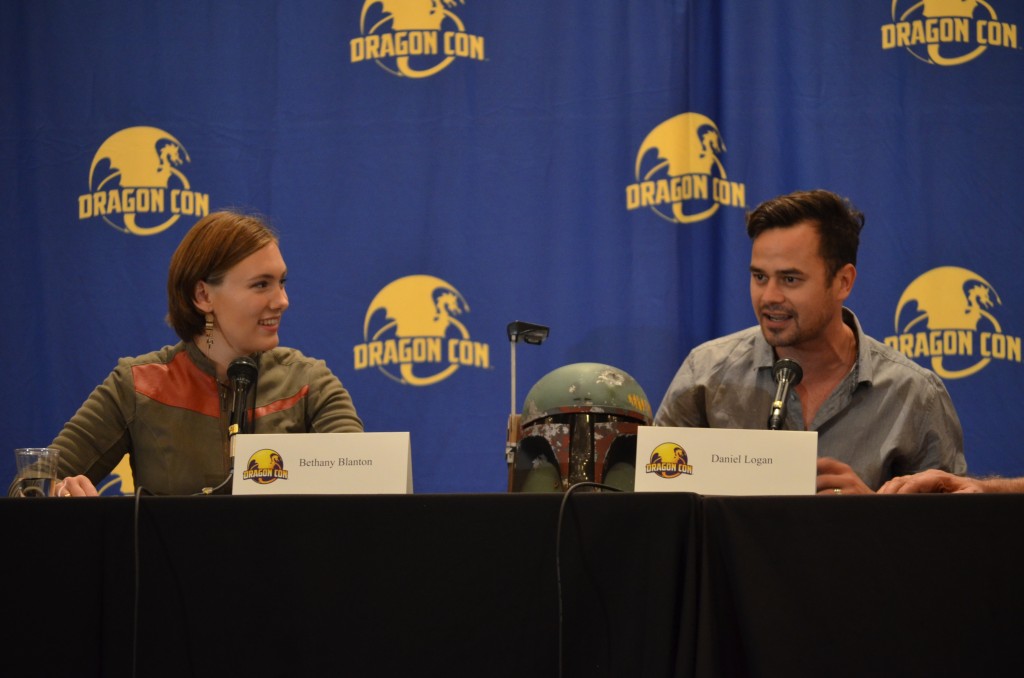
At the end of panels, thank the guests and the audience, and make sure you close with something cheerful and a call for thanking/clapping for the guests taking time to do the panel. I thanked Peter and Daniel for coming, and they were both very gracious and friendly. Help make sure, along with security and the guests’ representatives, that if the guest has to leave right away they’re able to, and the crowd is controlled so they have a way to continue on to their next convention destination.
I was honored to be chosen as a moderator, and hopefully those of you at the panel enjoyed it!
